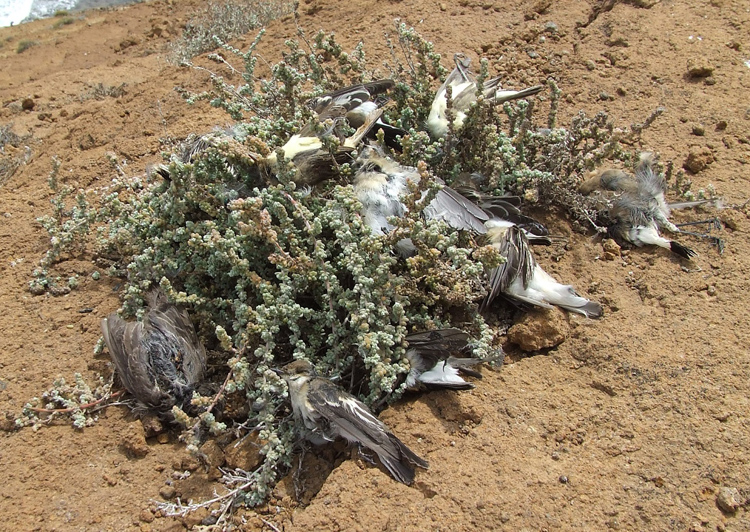Host shifts are widespread among avian haemosporidians, although the success of transmission depends upon parasite host and parasite vector compatibility. Insular avifaunas are typically characterized by a low prevalence and diversity of haemosporidians, although the underlying ecological and evolutionary processes remain unclear. This study investigated the parasite transmission network in an insular system formed by Eleonora's falcons (the avian host), louse flies that parasitize the falcons (the potential vector), and haemosporidians (the parasites). A great diversity of parasites was found in louse flies (16 Haemoproteus and 6 Plasmodium lineages) that did not match with lineages previously found infecting adult falcons (only one shared lineage). Because Eleonora's falcon feeds on migratory passerines hunted over the ocean, falcon kills were sampled in search of the origin of parasites found in louse flies. Surprisingly, louse flies shared 10 of the 18 different parasite lineages infecting falcon kills. Phylogenetic analyses revealed that all lineages found in louse flies (including five new lineages) corresponded to Haemoproteus and Plasmodium parasites infecting Passeriformes. Molecular evidence was found of louse flies feeding on passerines hunted by falcons. The lack of infection in nestlings and the mismatch between the lineages isolated in adult falcons and louse flies suggest that despite louse flies' contact with a diverse array of parasites, no successful transmission to Eleonora's falcon occurs. This could be due to the falcons' resistance to infection, the inability of parasites to develop in these phylogenetically distant species, or the inability of haemosporidian lineages to complete their development in louse flies. informacion[at]ebd.csic.es: Gangoso et al (2019) Louse flies of Eleonora's falcons that also feed on their prey are evolutionary dead end hosts for blood parasites. Mol Ecol https://doi.org/10.1111/mec.15020
https://onlinelibrary.wiley.com/doi/full/10.1111/mec.15020








 Las altas temperaturas están provocando que las lagunas y las marismas de Doñana pierdan agua rápidamente
Las altas temperaturas están provocando que las lagunas y las marismas de Doñana pierdan agua rápidamente



